Hiking vs trekking: what’s the difference and does it matter?
We explore the definitions and characteristics of hiking vs trekking so you know just what kind of adventure you’re going on, and how to plan for it
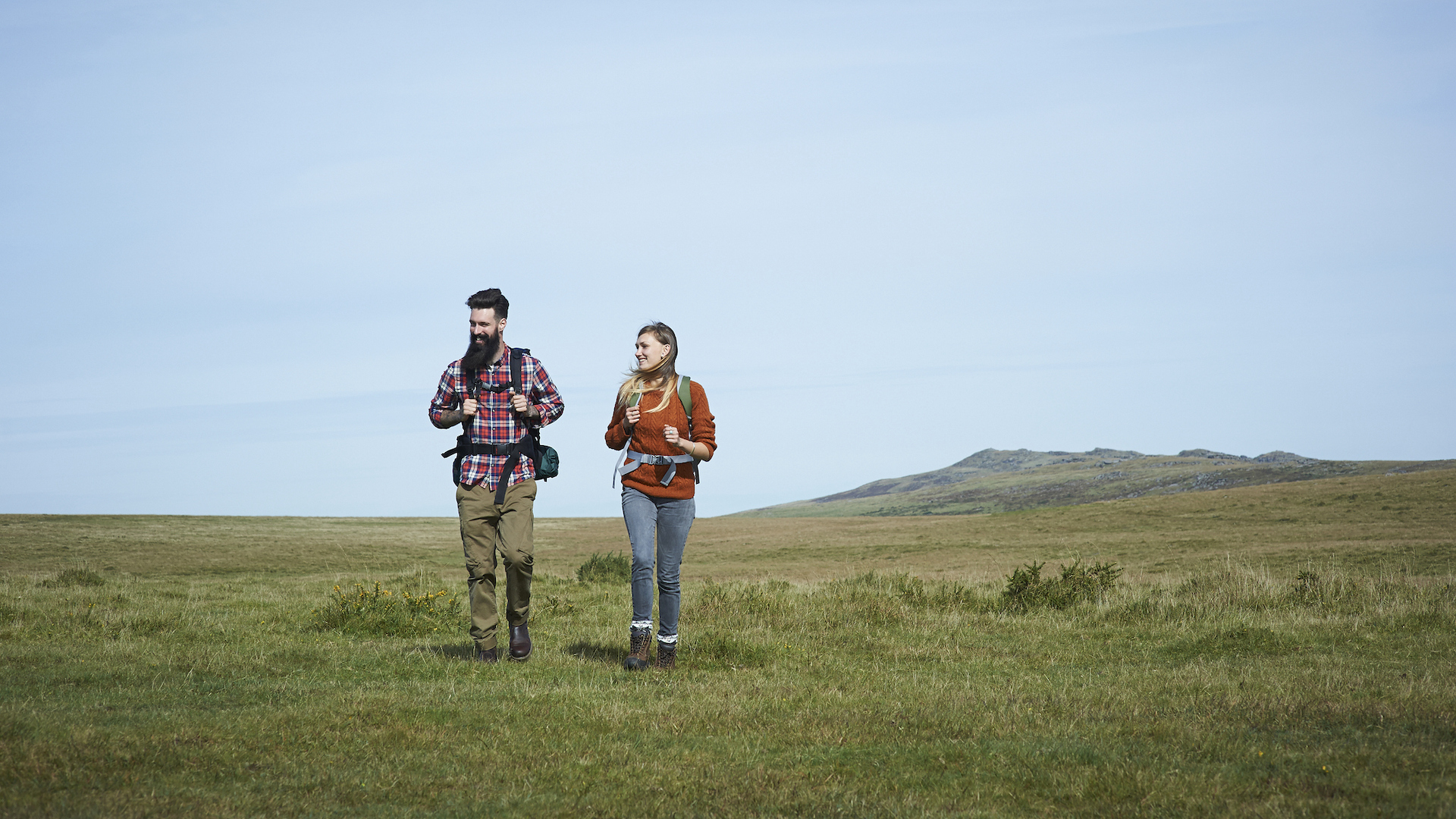
All the latest inspiration, tips and guides to help you plan your next Advnture!
You are now subscribed
Your newsletter sign-up was successful
In the outdoor world, the terms hiking and trekking are often used interchangeably, but do they actually mean the same thing? After all, there are any number of synonyms for hiking, from hillwalking and rambling to strolling and sauntering, so is a trek just another word for walking in nature? We take a look at the definitions and characteristics of hiking vs trekking so you know just what kind of adventure you’re going on, and how to plan for it.
What is the difference between trekking and hiking?
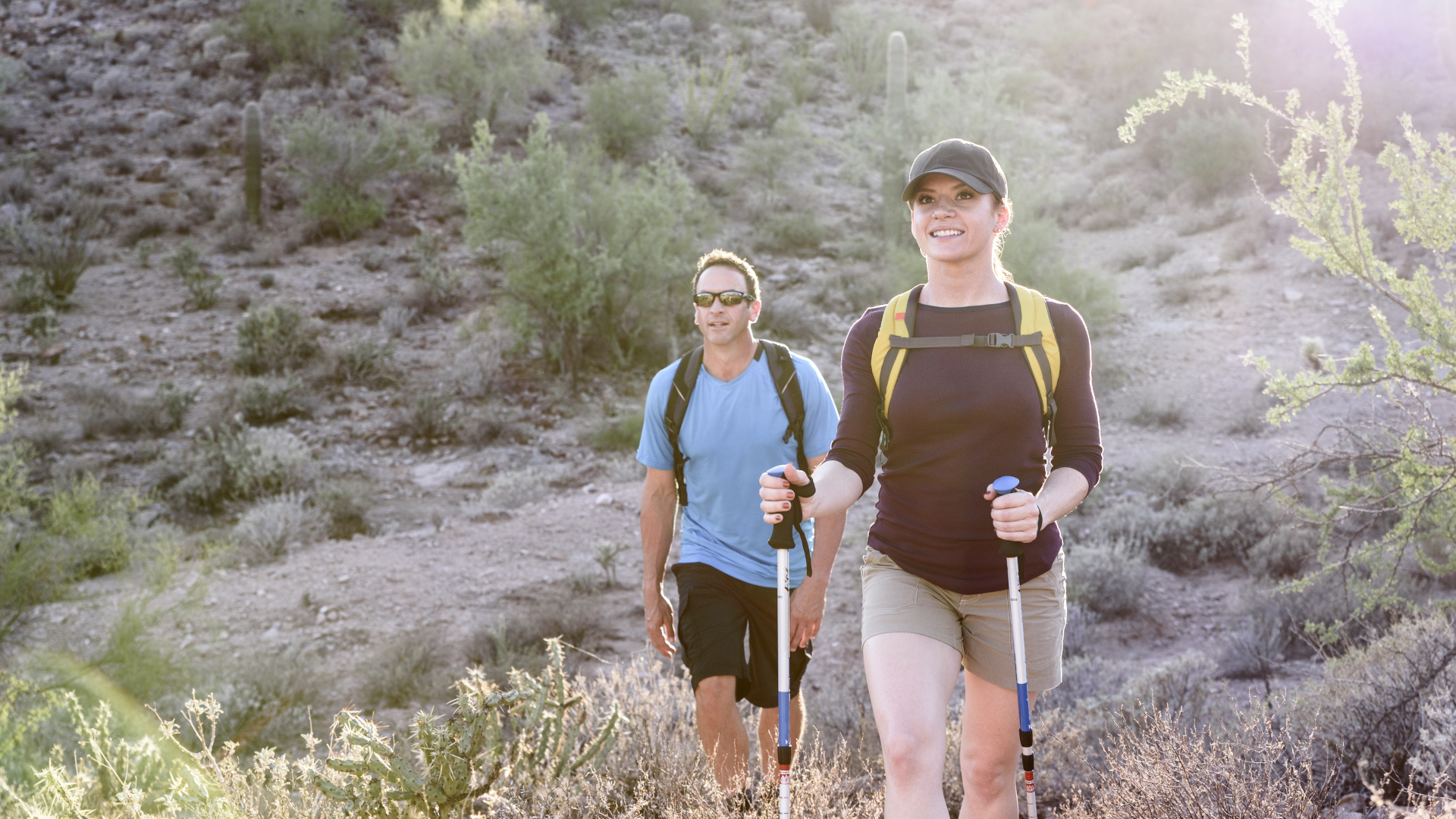
Hiking and trekking both describe walking in the outdoors, usually wearing hiking boots, so how different can they really be? The official definition of trekking is a long and arduous journey, especially one on foot. The word comes from a South African Dutch word “trakk” meaning “to pull or travel”. Meanwhile, hiking is defined as the activity of going for long walks, especially across country, and its origins are unknown.
So is the difference just semantics? In modern usage, at least, hiking and trekking do describe different activities, although the markers are all rather subjective. We took a closer look at the differences between hiking vs trekking and unearthed five key differences separating these two activities.
Hiking vs trekking: distance
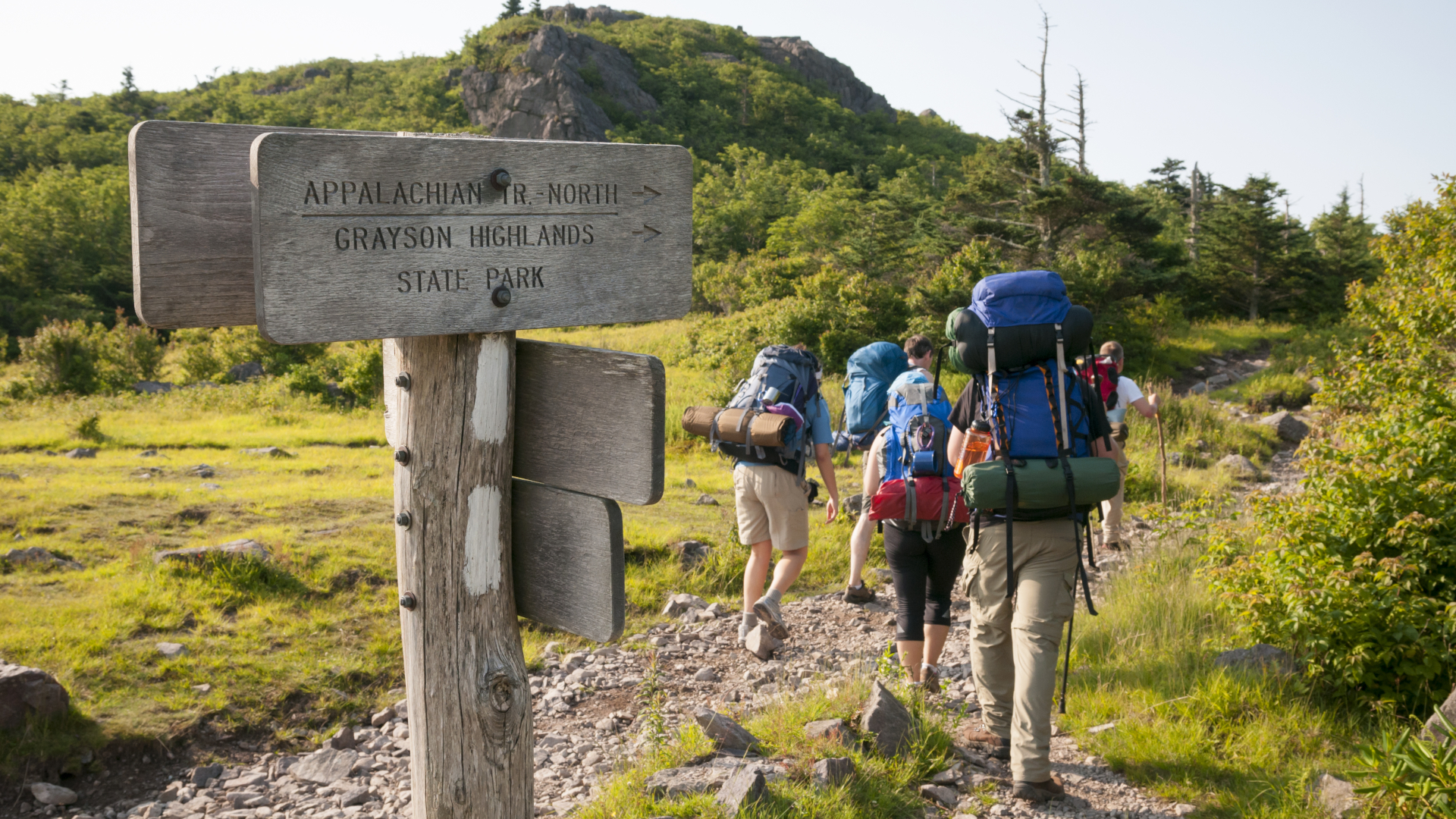
If you look at the definitions of hiking and trekking, they are both unhelpfully described as “long”. Asking the question “how long is a hike?” is a bit like asking “how long is a piece of string?” After all, as you probably know, when you set off on a hike it will be as long as it takes you to complete it, really. But even though there isn’t a specified distance that makes a hike a hike and a trek a trek, there is some difference here, albeit subjective difference.
A hike is going to be the shorter of the two, and general agreement is that if you can do it in a day, it’s a hike. For some of us though, the most we can walk in a day is five miles and for others, it’s close to 30. And some mountains that involve a little over a mile of steep climbing definitely still feel very much like a hike. Complicating matters further, if you do a one-night backpacking trip with a day of walking on either side, it’s still considered a hike. In fact, you could do a two or three-night trip and it might still be a hike. The question gets even trickier to answer when you ask what denotes a thru-hike.

Trekking, on the other hand, always involves travelling long distances. A trek in the Himalayas might cover over 100 miles for example. The definition of a long distance will vary between a novice and an ultra-runner, but for the sake of drawing a line somewhere, let’s just say that once you start getting up above the 40-mile mark, you’re more likely on a trek than a hike.
Hiking vs trekking: duration
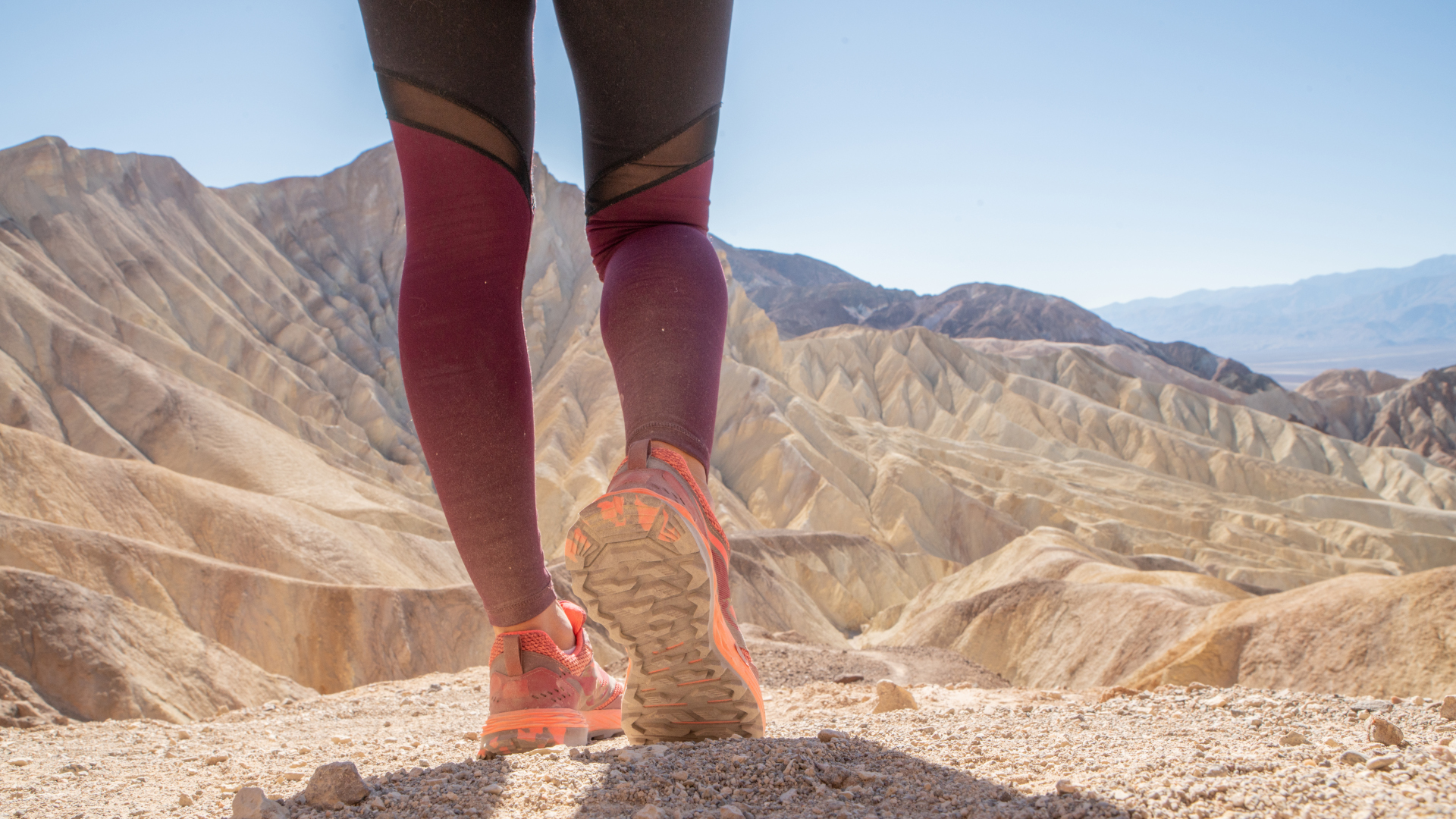
This one ties in with distance. Regardless of your pace, the further you go, the longer it will take you. Given what we said about the distance of hikes, a hike could presumably take you anywhere from an hour or two to several days. If we go by the very unofficial definition that a trek is 40 miles or more, well that could take the average hiker 4-5 days to complete, but again, someone else might be able to finish in two days. So again, there isn’t a strict definition here, but if it takes you more than a couple of days, it’s probably a trek.
All the latest inspiration, tips and guides to help you plan your next Advnture!
Hiking vs trekking: destination
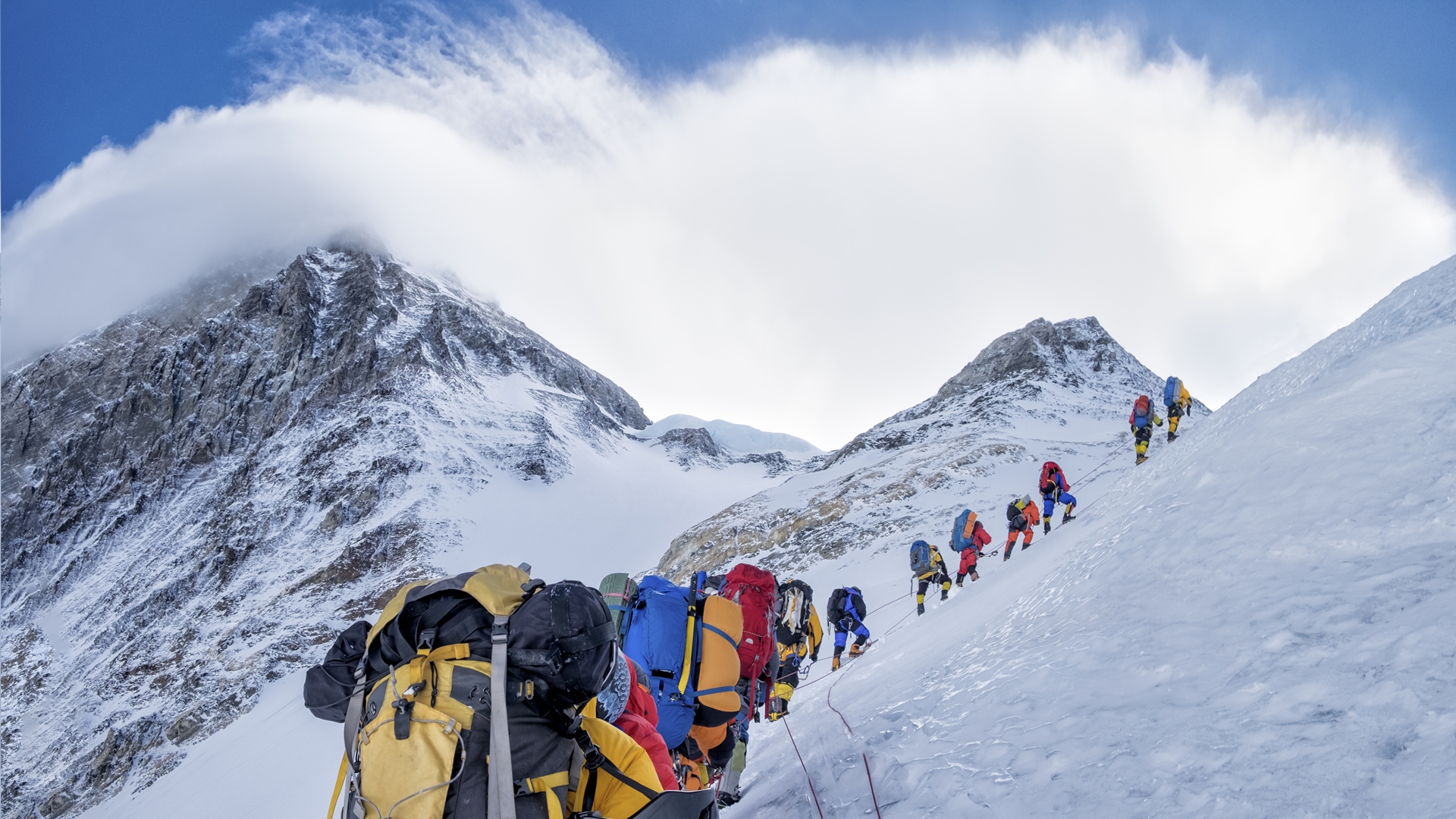
Next up, we’ve got the question of destination. As you know, hiking doesn’t have to involve a specific destination. You might well go to a mountain top, a lake or a waterfall but none of these features defines a hike, they just make it more scenic. As long as it’s taking place outside in nature, it’s a hike.
So what about trekking? In modern usage, trekking does usually denote some type of special destination, whether that’s the two-week walk to Everest Base Camp or a 500 mile pilgrimage on El Camino de Santiago. There isn’t always a spiritual significance – treks can indeed be done purely for enjoyment – but there is usually a significance more than just popping up the hills out your back door.
That said, you could walk to the summit of the legendary Mount Shasta for spiritual reasons and call it a pilgrimage, but at 10 miles it wouldn’t count as a trek, so destination only counts so far as distance when it comes to delineating a hike from a trek.
Hiking vs trekking: terrain
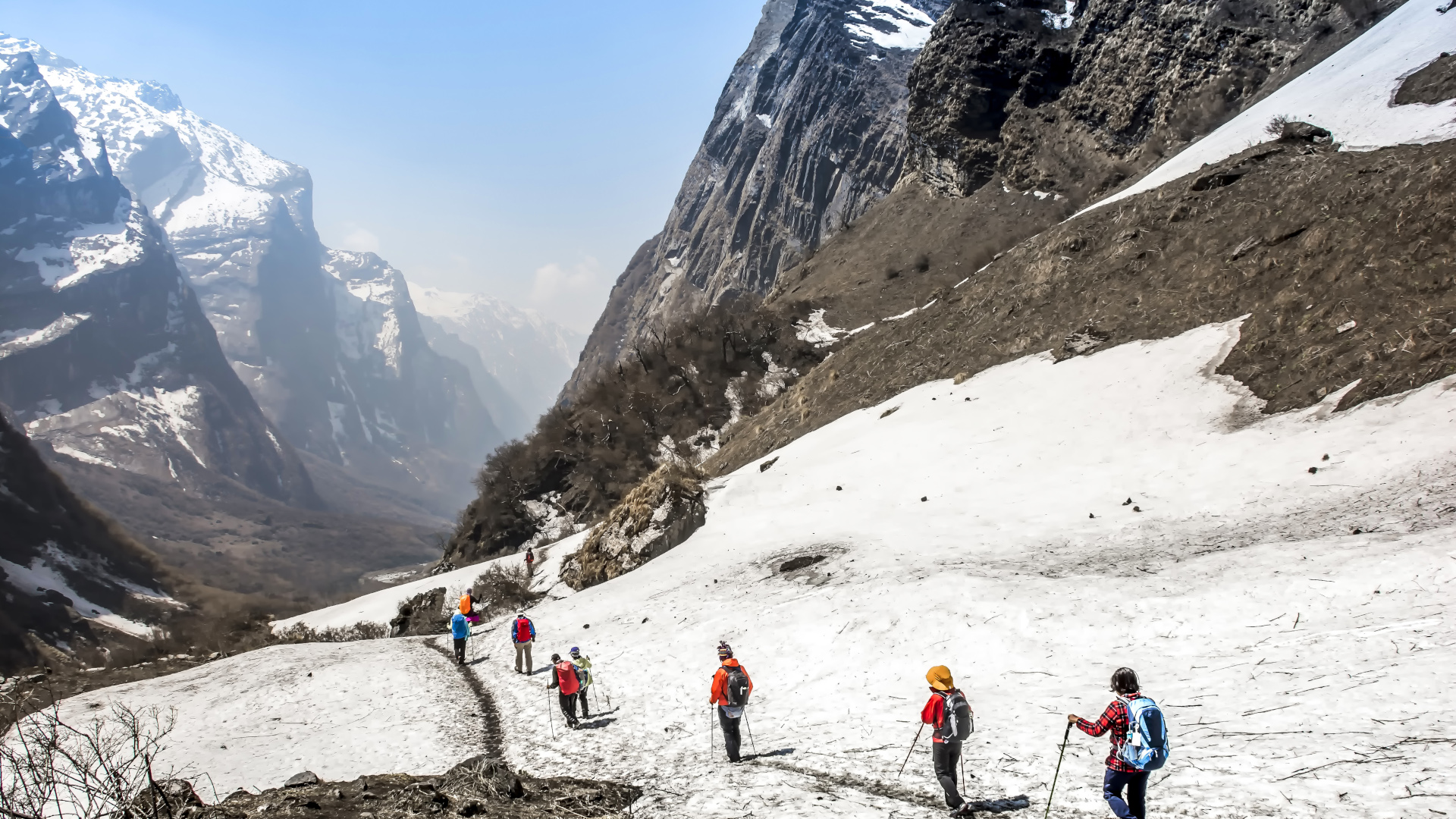
Now we can all agree that hikes and treks occur in the outdoors and in natural, not urban, environments. So is there any difference between the types of terrain you cover in hiking vs trekking?
In modern usage, hiking typically takes place on trails and footpaths. Trekking can also take place on a designated trail – the 2,200 mile Appalachian Trail is a great example – but may involve terrain where there are no trails, through the jungles of northern Thailand or across the Sahara would be extreme examples.
Once again, this classification also depends on distance, since you might have a nearby mountain that you love to walk up that has no official trail, but if it’s just a few miles you wouldn’t call it a trek just due to the lack of footpath.
Hiking vs trekking: enjoyment
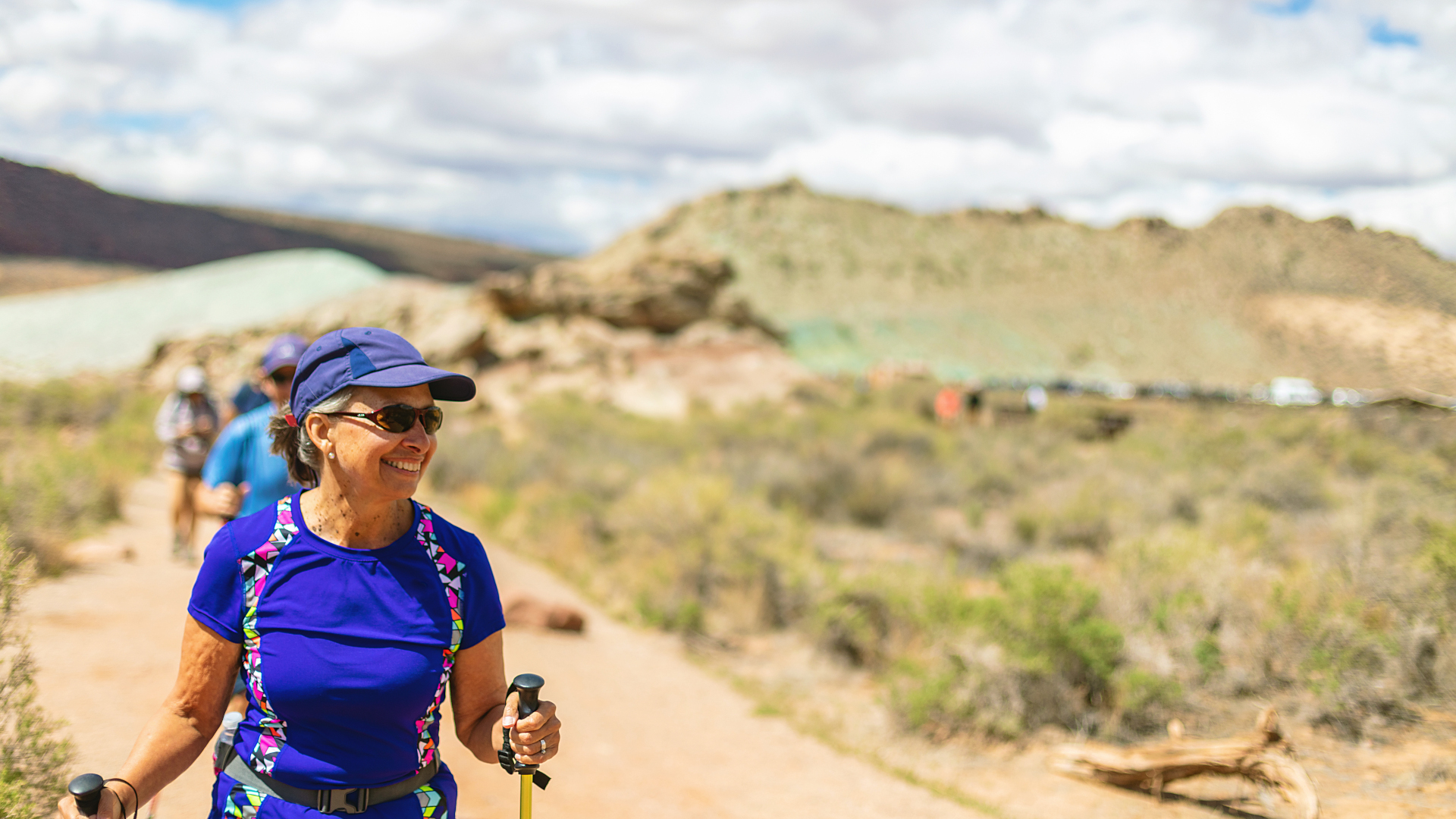
Now the enjoyment factor might be the most subjective category of all, but it’s one worth considering when it comes to hiking vs trekking. Though it might not be part of its official definition, hiking usually denotes a level of pleasure, versus doing something for material gain or to achieve a certain goal. If you recall though, trekking by definition is “arduous” meaning it will always be difficult and tiring. That’s not to say that you won’t enjoy elements of a trek, but at times it is likely to be harrowing.
Hikes can be arduous too of course, which you’ll know if you’ve tackled a Colorado 14er, but by definition they don’t have to be. You can stroll a gentle three-mile loop along a babbling brook in a meadow of wildflowers and it’s still a hike. If you’re trekking and not suffering a little, you’re either doing it wrong or you’ve achieved nirvana.
| Header Cell - Column 0 | Hiking | Trekking |
|---|---|---|
| Distance | Can be as short as a mile or two, but might be more than 20 miles | No set distance, but usually 40 miles or more |
| Duration | A couple of hours to a few days | Many days, weeks or even months |
| Destination | No destination required | Often to a significant location, like a pilgrimage |
| Terrain | Usually on designated trails and paths | May involve designated paths or unmarked wilderness |
| Enjoyment | Usually done for enjoyment, not solely for specific gains | By definition, trekking is arduous and involves suffering |
What is the difference between trekking and hiking?
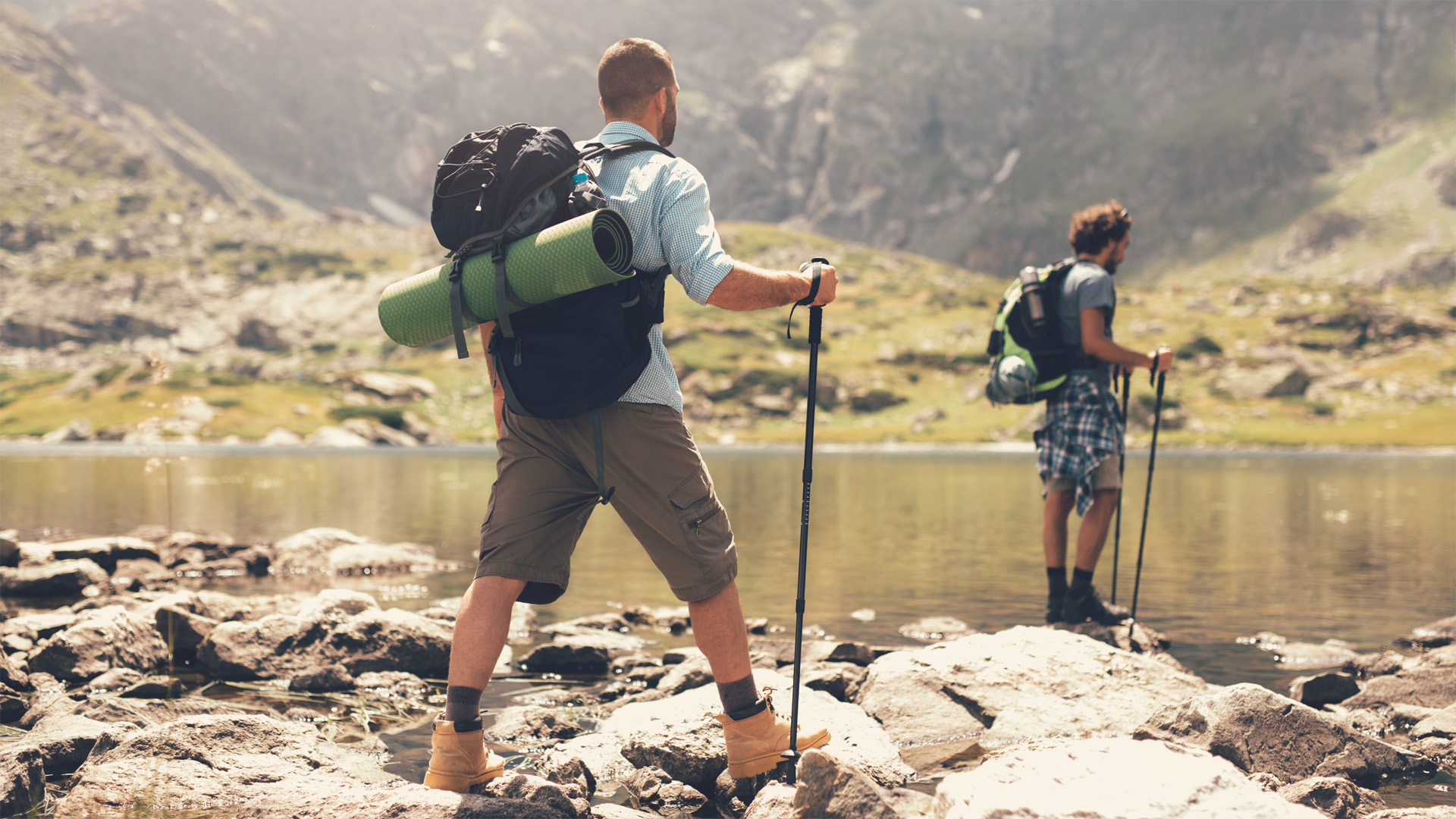
It seems like the biggest delineating factor between hiking and trekking comes down to the time it takes and distance covered, with some more nuanced possibilities coming into play like terrain, purpose and the enjoyment level, but why does all of this even matter?
Ultimately, the difference for you is knowing what kind of training, preparation and gear you’re likely to need. By now, you won’t be surprised to hear that there’s not a set gear list for a hike versus a trek, but for an easy day hike you might just need your best hiking shoes, a water bottle and a small daypack. For a longer hike, you’d want to start thinking about proper boots, a layering system and a tent. Basically, it depends on the distance you’re covering and the season and weather, but you can read more in our article on What to wear hiking. You might need to train for a longer hike, but for most, you can just do your training on the trail and turn around when you get tired.

For trekking, it’s a bit more clear that you will need to train in advance, plan your journey and, unless you’ve got Sherpas, carry everything you need from a camping stove to a good one-person tent in a large backpack. After all, it’s going to be arduous and you want the best gear possible to lighten your load.
Julia Clarke is a staff writer for Advnture.com and the author of the book Restorative Yoga for Beginners. She loves to explore mountains on foot, bike, skis and belay and then recover on the the yoga mat. Julia graduated with a degree in journalism in 2004 and spent eight years working as a radio presenter in Kansas City, Vermont, Boston and New York City before discovering the joys of the Rocky Mountains. She then detoured west to Colorado and enjoyed 11 years teaching yoga in Vail before returning to her hometown of Glasgow, Scotland in 2020 to focus on family and writing.

